The first live performance at the inaugural Riga Music Week is by Saucējas (pictured above). This seven-piece vocal ensemble is avowedly Latvian. Formed in 2003 at the Latvian Academy of Culture, their singing, though polyphonic, allows space for solo lines within the framework of the collective voice. Drones and rounds are incorporated. A kinship with runo song is clear. In traditional costume, they embody an aspect of Mother Latvia: that this country wants to celebrate its traditions, ensuring they are not lost.
Saucējas are tremendously powerful. Experiencing them at Riga Music Week’s outdoor Folk Stage in Latvia’s repeatedly rain-sodden capital is akin to being blasted by a full-force leaf blower. Next up are Sun Horse, a duo whose name references the pre-Christian tradition of the sun being hauled through the heavens by a horse. They take keening, traditional vocal melodies and set them against digital effects, live drumming and a hypnotically sinuous recorder-like flute. After this, swirling folk-rockers Kaligo, whose high-octane attack suggests a kinship with early Seventies freak-folk outfits such as Comus or second-album Trees.
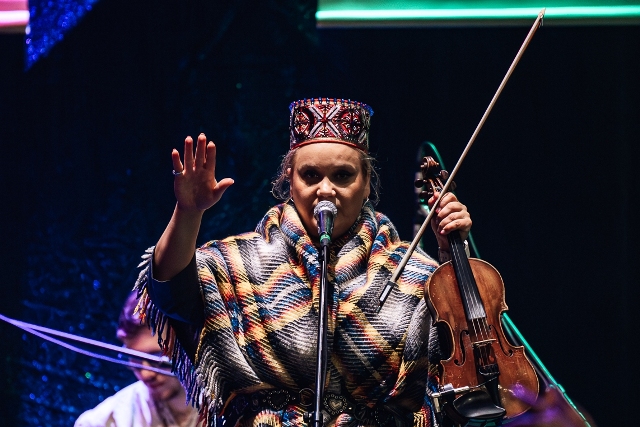 By any measure, despite their dissimilarity, Saucējas, Sun Horse and Kaligo are sensations. The Folk Stage is programmed by the spirited Katrīna Dimanta, who appears on it with both Folk Kardio and in a collaboration with Zeltrači. Clearly, folk music in all its forms is in rude health in Latvia. (pictured above, Katrīna Dimanta with Folk Kardio at Riga Music Week, photo by Raimonds Subatovičs)
By any measure, despite their dissimilarity, Saucējas, Sun Horse and Kaligo are sensations. The Folk Stage is programmed by the spirited Katrīna Dimanta, who appears on it with both Folk Kardio and in a collaboration with Zeltrači. Clearly, folk music in all its forms is in rude health in Latvia. (pictured above, Katrīna Dimanta with Folk Kardio at Riga Music Week, photo by Raimonds Subatovičs)
Riga Music Week, however, is not just about the traditional and what springs from it. Its mission is to showcase many flavours of Latvia’s music. Electronica, hip-hop, jazz, metal, rap, R&B, straight pop in an Ed Sheeran bag, various takes on indie rock. All are here, along with the defiantly uncategorisable. Also here are bands and singer-songwriters from Estonia and Lithuania, the other Baltic states. Musical envoys from France, Poland, Sweden, the Ukraine and the UK are along for the ride (one per country, but two from the UK). Nevertheless, this is categorically about Latvia and, to a notable degree, the other Baltic states.
It is also about reaching out from Latvia, saying that this country’s music needs paying attention to. As well as local ticket buyers, folks are here from France, Germany, the Republic of Ireland, Norway, Sweden and elsewhere, checking out what’s going on. Riga Music Week’s conference strand is a draw.
 Holding-out musical hands to beyond the border feels timely. The Republic of Latvia’s parliament – the Saeima – is seriously contemplating withdrawal from the Istanbul Convention, the Council of Europe convention on preventing and combating violence against women and domestic violence: it specifies that EU member states, which Latvia is, should have laws in this area. Latvia ratified this 2023 convention in January 2024. On one hand, the state is potentially severing a tie with the outside world. On the other, its music business is seeking to increase ties with, and access to, the outside world. Demonstrations are being held in Riga – and across Latvia, and in the other Baltic states – about the proposed withdrawal. One coincides with Riga Music Week, an event formulated by Agnese Cimuška-Rekke, Līva Pētersone-Kļaviņa and Guna Zučika, three – female – Latvian music-business veterans. (pictured above, YŪT at Riga Music Week, photo by Ritvars Stankevičs)
Holding-out musical hands to beyond the border feels timely. The Republic of Latvia’s parliament – the Saeima – is seriously contemplating withdrawal from the Istanbul Convention, the Council of Europe convention on preventing and combating violence against women and domestic violence: it specifies that EU member states, which Latvia is, should have laws in this area. Latvia ratified this 2023 convention in January 2024. On one hand, the state is potentially severing a tie with the outside world. On the other, its music business is seeking to increase ties with, and access to, the outside world. Demonstrations are being held in Riga – and across Latvia, and in the other Baltic states – about the proposed withdrawal. One coincides with Riga Music Week, an event formulated by Agnese Cimuška-Rekke, Līva Pētersone-Kļaviņa and Guna Zučika, three – female – Latvian music-business veterans. (pictured above, YŪT at Riga Music Week, photo by Ritvars Stankevičs)
Without the nudge provided by Riga Music Week, getting a handle on Latvia’s music is difficult for an outsider. The prod the event provides seems essential. Richard Wagner was in Riga in the 1830s and, much later, song was fundamental to the period leading up to Latvia’s 1991 independence from the Soviet Union. Latvia has (intermittently) figured strongly in the Eurovision Song Contest: first entering in 2000, when the band Brainstorm – known as Prāta Vētra in Latvia – came third. The duo Instrumenti’s arty electronica has made a mark: their member Jānis Šipkēvics is a Riga Music Week, playing as Shipsea. The independent label I Love You Records has issued many records by Latvia’s musical individualists. All fragments, disconnected snapshots. Finally, with Riga Music Week, it becomes possible to appreciate a wider, potentially integrated, picture.
There is, indeed, a Eurovision undertone to Riga Music Week. Ziferblat, the Ukraine’s 2025 Eurovision entrants are playing. The co-writer of “Yodel it,” Romania’s 2017 Eurovision entry, is here. As is the driver of The Roop, 2020’s Lithuanian Eurovision entry. Lithuania's Eurovision commentator is around. From Latvia, a producer behind the home country’s Eurovision entrants is here. So is the Latvian Eurovision delegation’s Head of Media. Also present is a long-term Swedish live event co-ordinator for Eurovision. As well as the Eurovision-related or adjacent, those playing live also include entrants from Latvian TV’s version of X Factor.
 Paradoxically, the sense this event might be a live-action series of Eurovision or TV talent-show trials is absent. Latvia’s music biz clearly sees importance in the contest; as a shop window and a way in to other markets. Yet the live music here has no clear emphasis in this direction. The disparity is striking. (pictured above, Vultura at Riga Music Week, photo by Raimonds Subatovičs)
Paradoxically, the sense this event might be a live-action series of Eurovision or TV talent-show trials is absent. Latvia’s music biz clearly sees importance in the contest; as a shop window and a way in to other markets. Yet the live music here has no clear emphasis in this direction. The disparity is striking. (pictured above, Vultura at Riga Music Week, photo by Raimonds Subatovičs)
That said, some of what’s on stage could comfortably slip into the mainstream music scenes of other countries. Most convincing is YŪT, a drummer / vocalist duo dealing in a forceful form of R&B-flavoured electro-rap pop. Live, it's energised, but singer Emīls may wish to hand over the between-song laptop cues to someone else. Doing them himself during their live set distracts and breaks the flow. More abrasive is Vultura, who is accompanied on stage by a DJ and a drummer. Jagged, ever-moving, Vultura uses auto-tune live in a hyper-kinetic electronic dance music. A wild, unchoreographed ride. Fun too.
While the mainstream-minded or mainstream-bordering are given a leg up by Riga Music Week, more niche tastes are amply catered for over the festival’s two days – as the Folk Stage confirms. The striking choice of a setting is in line with this openness. The event takes place in Riga’s Tallinas kvartāls: the Tallinn Quarter, named after the adjacent street Tallinas iela rather than directly after Estonia’s capital.
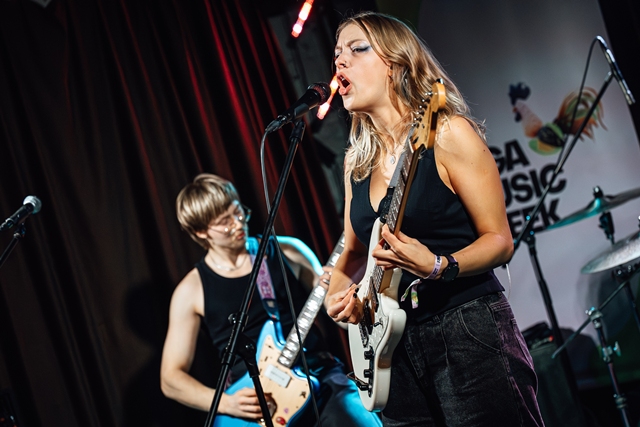 The city block is mostly taken up by what used to be a tool factory – of saws and suchlike – opened by the German businessman Otto Erbes in 1896. Over time, with changes of use, the buildings became an ambulance and fire engine depot. A proposal to open a piano factory went nowhere as a local church was concerned about potential noise: an ironic echo from history considering Riga Music Week is now hosted here. One corner of the plot is occupied by a large wooden-clad house: formerly a chess school for children. (pictured above, Purple Negative at Riga Music Week, photo by Raimonds Subatovičs)
The city block is mostly taken up by what used to be a tool factory – of saws and suchlike – opened by the German businessman Otto Erbes in 1896. Over time, with changes of use, the buildings became an ambulance and fire engine depot. A proposal to open a piano factory went nowhere as a local church was concerned about potential noise: an ironic echo from history considering Riga Music Week is now hosted here. One corner of the plot is occupied by a large wooden-clad house: formerly a chess school for children. (pictured above, Purple Negative at Riga Music Week, photo by Raimonds Subatovičs)
Amazingly, within the Erbes-period buildings, some ornate original architectural features survive. That they were not ripped out during the Soviet occupation years is remarkable. Now, this cherishable area is run by a trust with its main buildings housing art-inclined entrepreneurial concerns as well as the bars, restaurants and venues Angārs, ConTakts and Ezītis Miglā, all of which are used by Riga Music Week. Including the outdoor Folk Stage, there are six stages in total. The historic resonance of the district is emphasised by what’s on the next city block over: the headquarters of Latvia’s largest chocolate manufacturer Laima (founded in 1870). There, there is a shop, café and chocolate museum. It’s all around two kilometres north-east of Riga’s UNESCO-listed Old Town and has a markedly different, earthier, vibe – but it is just as fascinating.
It is a great location for Riga Music Week. Resonant with still-palpable heritage, yet buzzingly fresh too. This is exemplified by jazz flautist Sniedze Kārkliņa at ConTakts, who sounds like nothing else. The approach to intonation, melody and phrasing – presumably – reflects a Latvian identity.
 Also at ConTakts, Purple Negative are somewhat easier to parse with their wonky, blues-infused take on the angular aspects of shoegazing: think The Gun Club were they welded to attack of mid-period My Bloody Valentine. Unique, with an inimitability which took Purple Negative into the shortlist of last year’s Austras balva, Latvia’s equivalent to the Mercury Music Prize. This year's Austras balva listing includes Bēdu Brāļi – also playing Riga Music Week – whose more linear mélange of shoegazing archetypes is captured splendidly on their recent album Lauskas. (pictured above, Alonette at Riga Music Week, photo by Raimonds Subatovičs)
Also at ConTakts, Purple Negative are somewhat easier to parse with their wonky, blues-infused take on the angular aspects of shoegazing: think The Gun Club were they welded to attack of mid-period My Bloody Valentine. Unique, with an inimitability which took Purple Negative into the shortlist of last year’s Austras balva, Latvia’s equivalent to the Mercury Music Prize. This year's Austras balva listing includes Bēdu Brāļi – also playing Riga Music Week – whose more linear mélange of shoegazing archetypes is captured splendidly on their recent album Lauskas. (pictured above, Alonette at Riga Music Week, photo by Raimonds Subatovičs)
While it’s foreseeable that Latvia holds most of the cards at Riga Music Week, their Baltic neighbours are also making a case. On the stage at ConTakts, Estonia’s mariin k – led by Mariin Kallikorm – deal in a Teenage Fanclub-esque, Dinosaur Jr.-leaning rock which delights. “We’re a guitar band” declares Kallikorm. At the down-home bar/restaurant Ezītis Migla, jazz-rooted fellow Estonian Anett Tamm – who records and plays as Alonette – is in the Jessica Pratt ballpark or, looking back earlier, educes Linda Perhacs or the 1968 Tim Buckley. This comes across as a big deal, as being on the ground floor of something significant. Back at ConTakts, Lithuania’s Kabloonak – fronted by singer-songwriter Jonas Narbutas – initially seem along the lines of Al Stewart were he filtered through a Cass McCombs sensibility. As the set progresses, things harden. Chugging set closer “Inspired” is built around the “Sister Ray” riff.
Spooling back to whether Riga Music Week makes it possible to appreciate a wider, integrated, picture of Latvia’s music, the answer is a unambiguous yes. On this evidence, extending the reaction to the Folk Stage, popular music is in rude health in Latvia. Perspectives or tastes don’t matter. There’s more-than enough to intrigue, to fascinate, anyone looking for new thrills – new, that is, to non-Latvians, Moreover, Riga Music Week triggers a desire to dig further.
 Take Trīsas. Playing ConTakts, they demand, once seen, to be seen again. They are three women, each playing a synthesiser. The keyboards look as if they’re of a 1990’s vintage. They are playing the keyboards: not triggering the pre-programmed. A form of synth pop then. They sing in Latvian. One of their songs mentions the word “antibiotic.” It conjures Kraftwerk’s “Ohm Sweet Ohm” were it played by the early, pop-model Depeche Mode (who, later on, gained a massive following in Latvia). They are each wearing red and black. Another Kraftwerk nod? (pictured above, Trīsas at Riga Music Week, photo by Raimonds Subatovičs)
Take Trīsas. Playing ConTakts, they demand, once seen, to be seen again. They are three women, each playing a synthesiser. The keyboards look as if they’re of a 1990’s vintage. They are playing the keyboards: not triggering the pre-programmed. A form of synth pop then. They sing in Latvian. One of their songs mentions the word “antibiotic.” It conjures Kraftwerk’s “Ohm Sweet Ohm” were it played by the early, pop-model Depeche Mode (who, later on, gained a massive following in Latvia). They are each wearing red and black. Another Kraftwerk nod? (pictured above, Trīsas at Riga Music Week, photo by Raimonds Subatovičs)
Trīsas’s vocal melodies are folky, sometimes declamatory. A helpful fellow audience member translates some of the lyrics which, he says, are “relatable.” A sample: “don’t stand up until you’re blackout drunk, blackout drunk, drink, drink, drink your vitamins.” Another song is about needing a pack of cigarettes to get through the day. Then another and another, and a fourth. Trīsas – which translates colloquially as “thrills” – are, indeed, thrilling.
As they come off stage, they are in a hurry. There is no time to waste. They need to get to the Old Town’s Doma Square to join the demonstration against Latvia’s proposed withdrawal from the Istanbul Convention. There, they end up as three amongst an estimated 10,000. Successive waves of what seems to be folk song are sung by those present. This, then, offers a way to see Latvia – a judgement confirmed with aplomb by diving into the instantly indispensible Riga Music Week. Music is integral to the fabric of this country.

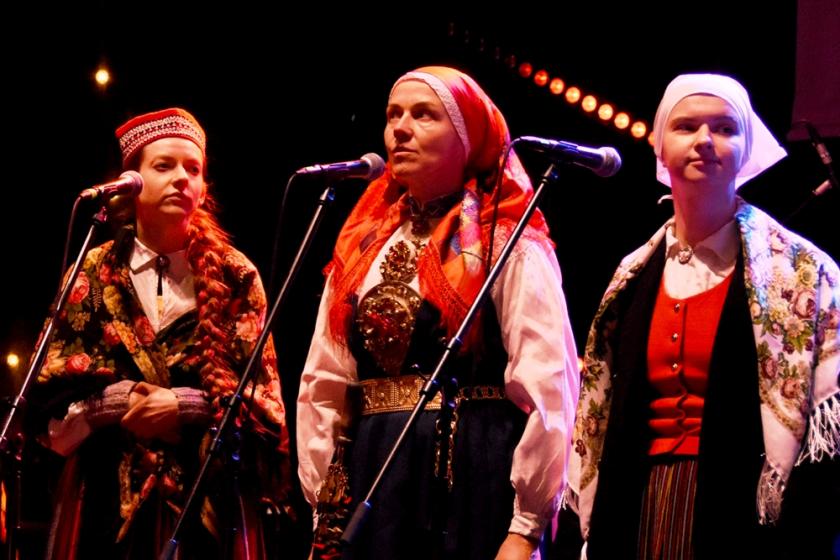

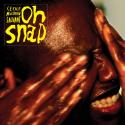



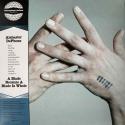
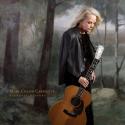


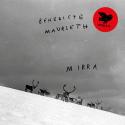

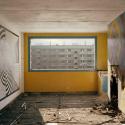

Add comment